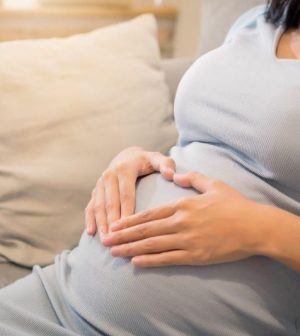- Could Your Grocery Store Meat Be Causing Recurring UTIs?
- Are You Making This Expensive Thermostat Error This Winter?
- Recognizing the Signs of Hypothyroidism
- 10 Strategies to Overcome Insomnia
- Could Artificial Sweeteners Be Aging the Brain Faster?
- Techniques for Soothing Your Nervous System
- Does the Water in Your House Smell Funny? Here’s Why
- Can a Daily Dose of Apple Cider Vinegar Actually Aid Weight Loss?
- 6 Health Beverages That Can Actually Spike Your Blood Sugar
- Treatment Options for Social Anxiety Disorder
Pregnancy Often More Stressful for Women With Autism

Women who have autism are more vulnerable during pregnancy to depression and anxiety, according to a new British study.
That makes it imperative that effective mental health screening and support is available to help this group, said lead researcher Sarah Hampton, from the University of Cambridge.
“The results also suggest that autistic people may benefit from accommodations to prenatal health care. These may include adjustments to the sensory environment of health care settings, as well as adjustments to how information is communicated during prenatal appointments,” co-author Rosie Holt said in a university news release. She is a research associate at the Cambridge-based Autism Research Center.
For their study, researchers surveyed more than 900 women about their pregnancy experience. Anyone who was pregnant at the time or had previously given birth was eligible to take part in the online survey.
In all, 417 respondents had autism and 524 did not.
Women with autism were about three times more likely to report having had prenatal depression. About 24% of those with autism experienced depression, compared to 9% of others. Nearly half — 48% — of those with autism experienced anxiety, while only 14% of respondents without autism did.
“We are grateful to members of the autistic community for providing feedback when we designed this research,” said study co-author Carrie Allison, deputy director of the Autism Research Center. “It is vital that autistic people with lived experience help shape the research we do, and we keep their priorities as a clear focus.”
The survey also found that women with autism were less satisfied with their pregnancy-related health care. They were less likely to trust professionals, less likely to feel that their concerns and questions were taken seriously and less likely to feel that professionals treated them respectfully. They were also less likely to be satisfied with the way information was presented to them during appointments.
Expectant women with autism were also more likely to experience sensory issues during pregnancy and feel overwhelmed by smells, sights, lights and sounds at prenatal appointments.
“It is important that more research is conducted looking at the experiences of autistic new parents, who have been neglected in research,” said study co-author Sir Simon Baron-Cohen, director of the Autism Research Center. “It is also important that this research is translated into health and social care policy and practice to ensure these parents receive the support and adaptations they need in a timely manner.”
The findings were recently published in the Journal of Autism and Developmental Disorders.
More information
The U.S. Centers for Disease Control and Prevention has more on living with autism.
SOURCE: University of Cambridge, news release, Oct. 26, 2022
Source: HealthDay
Copyright © 2026 HealthDay. All rights reserved.










